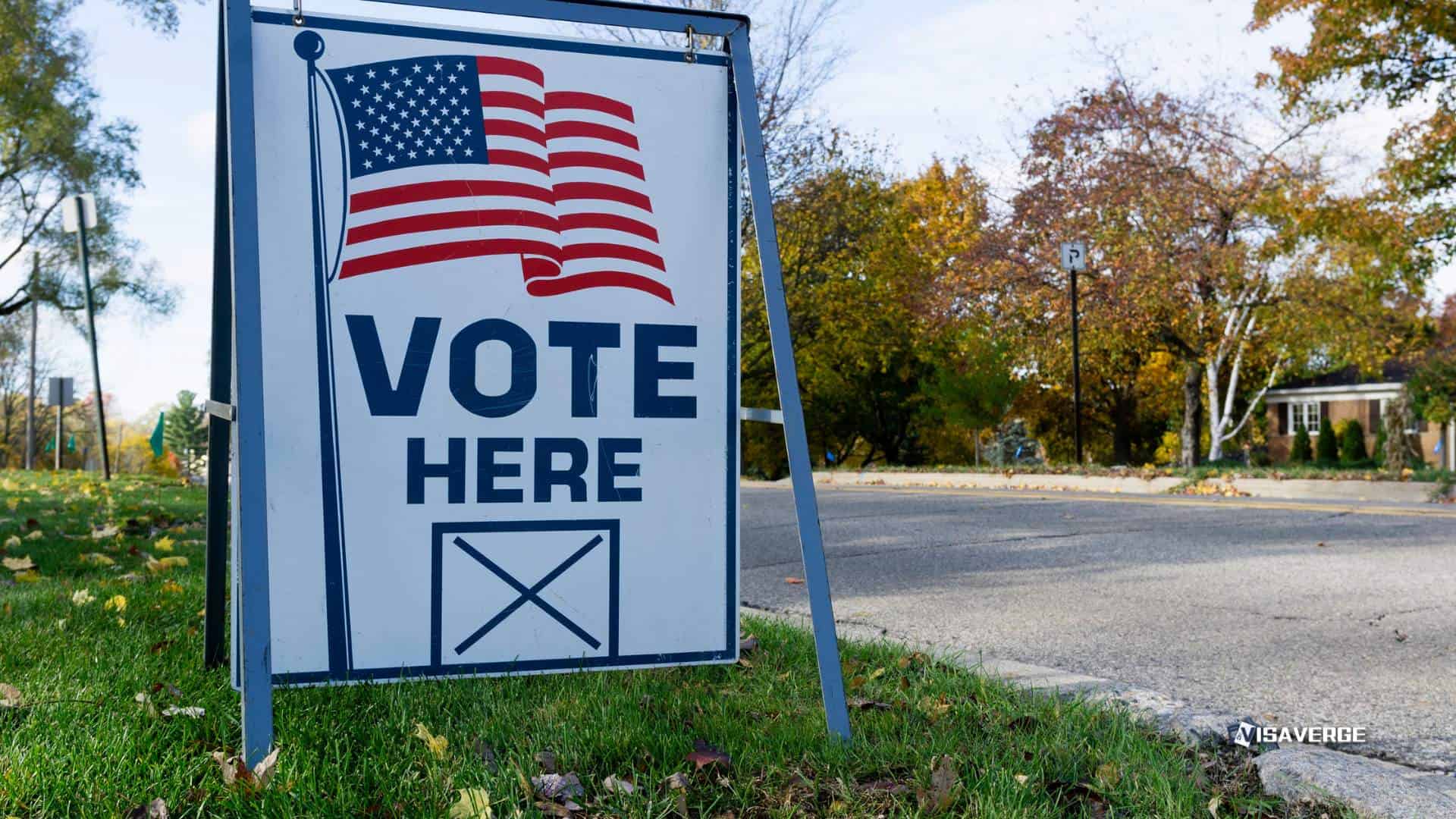(UNITED STATES) Proposed and ongoing OPT restrictions in 2025 are putting the future of many international students at risk, with new limits and policy ideas that could sharply reduce their chance to work in the United States after graduation. The Optional Practical Training program, known as OPT, lets F‑1 students gain up to a year of work experience tied to their studies, with a longer 24‑month STEM extension for science, technology, engineering, and math fields. Advocates say the rules now under discussion would make OPT harder to access, more expensive for employers, and less predictable—changes that could push talented graduates to leave the United States at the very moment the country says it needs them most.
According to analysis by VisaVerge.com, the growing uncertainty is already shaping student choices and employer hiring plans.

Key proposed changes and what they mean
- Shift from “duration of status” to fixed maximum stays — DHS has floated replacing the current model with fixed maximum stays (proposed up to four years) for F‑1 students. In practice, students might need to request extensions simply to finish school and take part in OPT.
- Supporters say fixed dates make enforcement clearer.
- Critics warn it adds another step that can delay post‑graduation jobs and even force students to leave the country if timing goes wrong.
- Restriction or elimination of OPT — Some lawmakers and officials are pushing to reduce, restrict, or end OPT, arguing it displaces U.S. workers or exceeds DHS authority. Proposals include:
- New employer fees for hiring OPT workers
- Wage‑based selection systems that favor higher salaries
- Applying FICA payroll taxes to OPT wages that have been exempt in the past
None of these changes are final, but the combined proposals point to tighter rules and higher barriers for foreign graduates.
Timeline, enforcement, and compliance concerns
- Under proposed fixed stays, students would need clear extension approvals for school delays, internships, or the transition to OPT after graduation.
- Any processing delays could break the handoff between school completion and work start dates, potentially forcing students to pause employment or leave the country.
- Government scrutiny is increasing, including social media checks and monitoring of student activism. Some students fear peaceful protest or posts could be interpreted as visa problems—creating a chilling effect on campus speech.
“The line between good oversight and a deterrent to lawful hiring is thin,” — heightened enforcement can protect students from sham jobs but may also scare off legitimate employers.
Impact on students
- Many students plan multi‑year education journeys around OPT: one year of post‑completion work, plus up to 24 additional months for eligible STEM graduates.
- If OPT is limited or ends in 2025, graduating seniors and recent alumni could see plans collapse with little time to pivot.
- Employers may withdraw offers rather than wait for added steps or pay new fees.
- Some students might accept low‑wage or unrelated jobs to maintain lawful status, opening the door to exploitation (under‑pay, off‑the‑books work, or roles outside a graduate’s field).
- Emotional and financial toll:
- Students who invested savings and family support worry they might be forced to leave without gaining work experience.
- Parents’ financial plans often rely on at least one year of legal work to offset tuition and living costs; sudden changes can mean sunk costs and unmanageable debt.
- Campus effects and enrollment:
- Universities estimate the potential elimination or severe curtailment of OPT could reduce international student enrollment by 30–40%, possibly meaning up to 150,000 fewer new students in fall 2025.
- Admissions repeatedly hear: “Will I be able to work after I graduate?” If the answer becomes “probably not,” students may choose countries with clearer post‑study routes.
Who relies on OPT and participation data
- In the 2023–24 cycle, about 242,782 graduates used OPT—far more than any other early‑career work route.
- Employers—especially in tech, engineering, health, and data fields—use OPT to fill skill gaps and to test candidates in real‑world roles.
- Smaller companies and start‑ups are particularly vulnerable to new employer fees, which could sideline them from campus recruiting.
Specific proposal impacts
- Employer fees:
- Intended to offset program costs and “level the field.”
- Critics say fees would disproportionately impact small and mid‑sized firms, reducing campus recruiting and narrowing opportunities for graduates.
- Wage‑based selection:
- Would prioritize higher‑paying roles.
- Supporters argue it favors top talent and discourages low‑wage misuse.
- Opponents counter it would shut out entry‑level, non‑profit, and public interest roles that pay less but provide essential training.
- Taxing OPT wages (FICA):
- Many OPT earnings have been exempt from FICA to date.
- Taxing these wages would reduce students’ take‑home pay and raise employers’ payroll costs, potentially discouraging OPT hires.
Enforcement vs. access: the balance
- Officials have increased efforts to fight payroll fraud and sham training roles—measures that protect students.
- However, strong enforcement without clear guidance can:
- Scare legitimate employers away
- Create delays that disrupt hiring cycles
- Make OPT less predictable for students and universities
Wider economic and campus fallout
- Cutting OPT risks long‑term losses in U.S. innovation, productivity, and economic growth by shrinking a pipeline of highly skilled talent educated in the U.S.
- Universities could face budget shortfalls from reduced international tuition, leading to:
- Fewer course offerings
- Scaled‑back research
- Potential tuition pressure on domestic students
- Competitive consequences:
- Countries with clearer post‑study pathways become more attractive.
- Over time, the U.S. could lose startups, discoveries, and skilled workers to other nations.
Civil liberties and campus life
- Increased social media and activism scrutiny raises civil liberties concerns.
- Students worry lawful protest could be misread as a threat to visa status, chilling campus debate and expression.
- Campus leaders want to protect free speech while ensuring students’ immigration safety.
What universities and employers are doing
- Advisers and career offices are spending more time helping students navigate uncertainty.
- Employers are asking more detailed questions about hire dates and flexibility; some are delaying recruiting until rules are clear.
- Universities call for:
- Clear timelines and transition periods that align with academic and hiring cycles
- Fast, reliable processing if fixed stays are adopted
- Fee structures that do not punish small employers
- Selection systems that do not eliminate public interest roles
Guidance and official resources
For official reference material, DHS provides public guidance on student practical training programs, including the STEM extension, through its education portal. Readers can review federal resources for context on eligibility and post‑completion benefits at Study in the States (DHS). That page offers the government’s baseline description of how OPT is structured today, though it does not cover the new proposals discussed here.
What would help if rules change
- Clear, early communication to schools, students, and employers to prevent panic and reduce errors.
- Realistic timelines and reasonable transition periods that respect graduation and hiring cycles.
- Enforcement focused on fraud and abuse, not on penalizing students and companies acting in good faith.
- Agency resources with step‑by‑step guidance, common case examples, and updated FAQs to help planning.
Bottom line
International students and universities are watching closely. OPT sits at the center of a talent cycle: admissions → education → workplace experience → alumni driving research and businesses. If proposed 2025 changes go forward—taxes on OPT wages, new employer fees, wage‑based selection, or fixed stays—the consequences could ripple through graduating classes and U.S. competitiveness for years.
For now, the key numbers and facts to keep in mind:
– 242,782 graduates used OPT in 2023–24
– 24 months: the current STEM extension
– Potential 30–40% drop in international enrollments if OPT is severely curtailed
Students, universities, and employers all urge careful design: target abuse, preserve practical training, and provide clear rules so people can plan. The choice will affect admissions seasons, campus communities, industry hiring, and the long arc of U.S. competitiveness—far beyond the policy debates in Washington.
This Article in a Nutshell
Proposals under consideration in 2025 could substantially alter the Optional Practical Training (OPT) program that allows F‑1 students to work after graduation. Key ideas include replacing the flexible duration‑of‑status model with fixed maximum stays (potentially up to four years), imposing employer fees, adopting wage‑based selection criteria, and applying FICA taxes to OPT wages. Stakeholders warn these changes could delay hiring, raise costs for small employers, reduce access to entry‑level and public‑interest roles, and prompt a 30–40% drop in international enrollment. About 242,782 graduates used OPT in 2023–24. Universities and employers call for clear transition timelines, targeted enforcement against fraud, and guidance to avoid disruptions to students’ careers and U.S. competitiveness.







